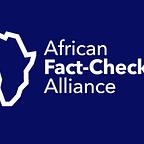Upholding truth with ethical, Rigorous fact-checking
Ethical bedrock and collaborative efforts pave the path for fact-checkers.
By: Bilal Taïrou
In a world where information manipulation and distortion have become effortless, the role of fact-checkers in upholding the truth has never been more vital.
Thus, Code for Africa (CfA) recently hosted a webinar, titled “Upholding Code of Conduct & Navigating Challenges in Fact-Checking,”. The webinar shed light on the crucial importance of ethical foundations, the potency of collaborative endeavours, and the intricate challenges confronted by fact-checkers as they strive to deliver credible information within today’s complex media landscape.
Building ethical foundations and harnessing collaborative efforts are indeed vital aspects that underpin the work of fact-checkers. This was underlined by the three (03) panellists who led the webinar: André MPoudi — a representative of Cameroon Association for Media Education, Aminata Sanou — a journalist and fact-checker from Burkina 24, and Sadibou Marong — representing Reporters Without Borders (RSF), Sub-Saharan Africa Office.
The credibility of fact-checkers hinges on their adherence to some high standards and principles, as André Mpoudi emphasised: “Adhering to the fact-checking code of conduct is paramount, including accuracy, transparency, and impartiality.”
Ensuring that these principles are upheld is not merely a choice but a responsibility that fact-checkers shoulder to combat mis/disinformation. Through a robust ethical framework, fact-checkers emerge as beacons of credibility in a sea of uncertainty.
Collaboration also emerged as a formidable force that can amplify the impact of fact-checking efforts. Aminata Sanou underscored its significance, particularly in nurturing a culture of respecting ethical guidelines within media organisations and fact-checking teams.
“Collaboration is the key to unveiling the truth and dispelling the fog of mis/disinformation that clouds our media landscape,” she said. “By pooling their collective intelligence, sharing resources, expertise and insight, fact-checking organisations can create a unified front against falsehoods and fortify their ability to provide reliable information to the public,” said Sanou.
Navigating the Challenges
The webinar also highlighted that navigating the complex terrain of mis/disinformation demands a sharp eye for detail, unwavering commitment to truth, and the resilience to face obstacles head-on. Time constraints often pressure fact-checkers to deliver rapid results, yet maintaining accuracy remains non-negotiable.
The panelists shared strategies to manage time constraints while upholding the integrity of fact-checks. These include prioritising high-impact claims, engaging in collaborative verification with other fact-checkers and experts, and leveraging technology and tools to streamline the fact-checking process.
Fact-checkers also grapple with handling misinformation from official sources. Upholding truth through fact-checking is not a simple task, especially when dealing with politically sensitive topics.
“It is here that the commitment to ethical conduct and transparency becomes paramount,” stressed RSF’s representative, Sadibou Marong. He called upon fact-checkers to address the difficulties by adopting transparent methodologies and citing credible sources to debunk false claims, which are practices that preserve the accuracy of information and hold authorities accountable.
As for the eventual consequences of their output, “fact-checkers must handle personal attacks and criticisms with grace when exposing false information, ensuring their professional conduct remains unblemished,” added Sadibou.
Experts and participants also acknowledged that building a society that values fact-checking and understands its importance requires increasing media literacy and fostering critical thinking skills.
Thirty-five (35) participants attended this event. And it is part of a series organised under the African Fact-Checking Incubator, a Meta-funded initiative implemented by CfA which aims at supporting the growth of indigenous media organisations that debunk mis/disinformation.
Five Francophone African countries are targeted during this pilot phase: Burkina Faso, Cameroon, Côte d’Ivoire, Mali and Niger.
